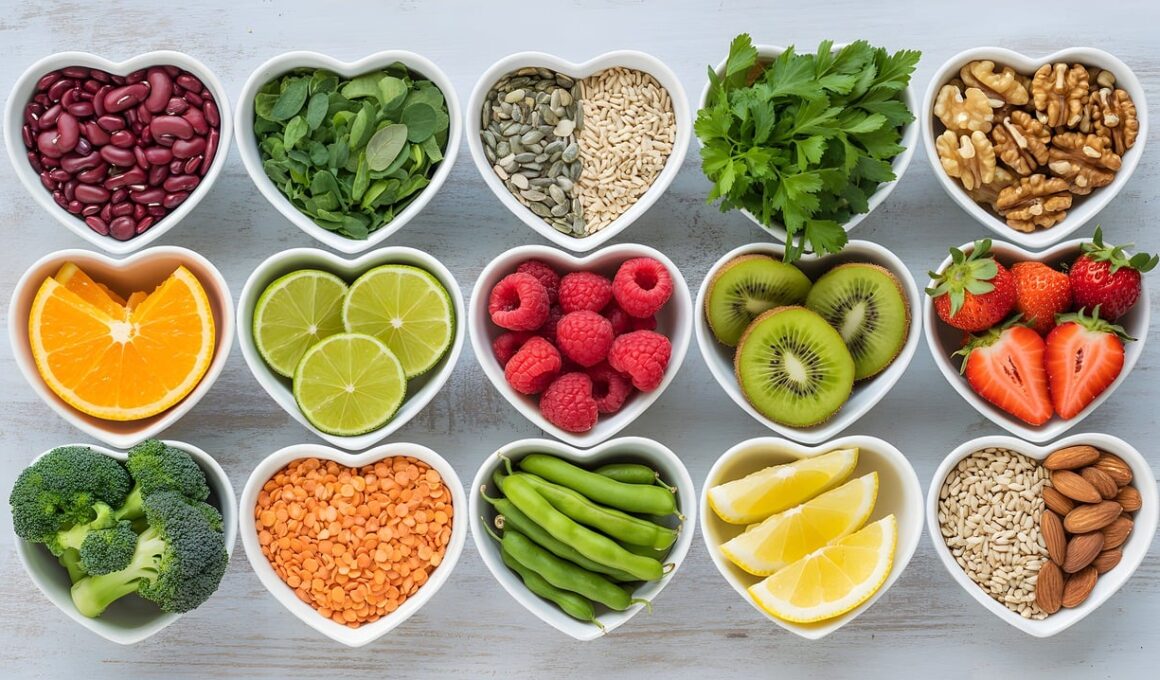Maximizing Gains with Balanced Post-Workout Meal Prep
Incorporating a well-structured approach to post-workout nutrition can significantly enhance recovery and muscle gains. After exercising, your body is in a state that requires the right nutrients to replenish energy levels, repair damaged tissues, and support muscle growth. Prioritizing protein intake is crucial, as it provides the necessary amino acids for muscle repair. Carbohydrates are equally important, as they refill glycogen stores that are depleted during workouts. A combination of both macronutrients is essential for optimal recovery. Consider meal prepping to save time and ensure that nutritious meals are always accessible. This helps in maintaining consistency in your fitness journey. Include lean proteins like chicken breast, fish, or plant-based options. Pair these with complex carbohydrates such as brown rice or quinoa, and don’t forget about healthy fats from sources like avocados or nuts. By planning your meals in advance, you can avoid the temptation of unhealthy fast food options after a workout. Make it a habit to prep meals in advance and enjoy the benefits the next time you hit the gym. Investing time in meal preparation reaps long-term rewards for your health and fitness goals.
Post-Workout Snack Ideas
When it comes to post-workout meals, having quick and convenient snack options is essential for maintaining energy levels. Easy-to-prepare choices can keep you on track with your nutrition goals without sacrificing time. Smoothies are a fantastic option; they can be packed with protein powder, fruits, and a handful of greens. Additionally, Greek yogurt combined with berries and a sprinkle of granola makes a satisfying treat that includes all three macronutrients. Another simple and effective snack idea is a homemade protein bar—these can be customized to cater to your personal taste and nutritional needs. Other snack options include hard-boiled eggs, which are an excellent source of protein, or nut butter on whole-grain toast that provides healthy fats and carbohydrates. Quinoa salad with vegetables also serves as a nutritious snack filled with protein and fiber. Preparation is key, so try to set aside a bit of time every week for meal prep. Stocking your kitchen with the right ingredients helps maintain a balanced diet, promotes muscle recovery, and ensures that your post-workout recovery is smooth and efficient.
Planning balanced post-workout meals means considering various food groups. This ensures that you take in a comprehensive range of nutrients. It’s essential to incorporate proteins, carbohydrates, and fats into your meals, as each plays a unique role in recovery. For protein, opt for chicken, lean beef, fish, or legumes. Carbohydrates can come from whole grains like quinoa or sweet potatoes, while fats can be sourced from nuts, seeds, and oils. When prepping meals, think diversity; try to include colorful vegetables to maximize vitamins and minerals. Additionally, consider the timing of your meal consumption. It’s advised to eat your post-workout meal within thirty to sixty minutes after exercising. This is when your muscles are most receptive to replenishing nutrient stores. Hydration shouldn’t be ignored; consume plenty of water and consider electrolyte supplementation if your workout was particularly intense or long-lasting. Understanding your individual energy needs and adjusting portion sizes based on workout intensity isn’t always easy; using a food tracker might help monitor your intake. Pay close attention to how different foods affect your performance and recovery.
Portion Control and Meal Timing
Portion control plays an important role in ensuring you get the most out of your post-workout nutrition. Overeating can lead to weight gain, which can counteract the progress made at the gym. Therefore, tracking portions is crucial as it can help you prevent both excessive and insufficient calorie intake. Consider using measuring cups or a food scale when prepping meals. Strive for a balance of macronutrients in your meals; for instance, aim for a protein-to-carbohydrate ratio of approximately 1:2 for post-workout meals. This can aid in better recovery and restore energy levels effectively. Additionally, meal timing is vital—eating soon after your workout can maximize muscle repair and recovery. Prepping your meals in advance ensures that you have what you need immediately after exercise. Take the time to explore different meal options and find what satisfies your calorie and nutritional goals. Awareness of how much you eat before, during, and after workouts can lead to better eating habits and overall improved fitness performance. Being mindful of these practices fosters long-term success in achieving your health and fitness objectives.
Another critical aspect of post-workout nutrition is variety. Eating the same foods every day can lead to boredom and might result in a lack of motivation to adhere to your meal plan. Diversifying your post-workout meals can make the process enjoyable, boosting adherence to your nutrition regimen. Experiment with flavors, textures, and even international cuisines to find what excites your palate. For example, try a spicy chickpea salad one day and a savory chicken stir-fry the next. Keep your meals interesting by utilizing different grains, such as bulgur, millet, or farro. Include seasonal fruits and vegetables to enhance flavor and nutrient intake. Additionally, consider incorporating herbs and spices to elevate the taste of meals without adding excessive calories. Changing your meal prep routine not only enhances enjoyment but also helps to cover a wider range of nutrients that your body needs for optimal recovery. Aim to discover recipes that are easy to prepare and suit your taste. By embracing variety, you can maintain motivation in your post-workout meal prep while still fueling your fitness goals effectively.
Tracking Your Progress
Tracking your post-workout nutrition can provide invaluable insights into your dietary habits and how they affect your performance. Developing awareness of what you consume helps you make better choices and see progress over time. Consider using a food journal or mobile app to log your meals, snacks, and hydration. Recording what you eat not only allows you to stay on top of your macronutrient targets but also identifies areas where you might need improvements. Analyzing how different meals affect your workouts and recovery can lead to adjustments that could optimize performance. Look for patterns; if particular foods seem to enhance your energy levels, make sure to include them regularly in your meal prep. Pay attention to how your body responds to various meals over time, noting both physical and mental performance changes. You’ll find that reflecting on your nutrition habits can enlighten you regarding potential dietary adjustments needed to hit your fitness goals. Remember that nutrition is a changing landscape; what works for you today might not work in a month, so review and reflect periodically on your nutritional strategies for continued success.
Ultimately, maximizing your post-workout nutrition requires dedication and consistency. Efficient meal prep empowers you to achieve your fitness goals while reducing stress and the chance of subpar eating choices. It’s worth emphasizing that post-workout nutrition is part of the larger picture of overall dietary habits. While focusing on meals after exercise, maintaining a balanced diet throughout the day will compound the benefits. Take the time to educate yourself on nutrition and familiarize yourself with healthy food options that can complement your lifestyle. As you continue to learn about nutrition, you’ll find what strategies work best for you while cultivating a sense of enjoyment around food. Remember to adjust your meal plans as needed to accommodate training cycles and personal preferences. Building healthy habits takes time; be patient with yourself as you navigate this journey. In the long run, the investment in meal preparation will yield tangible rewards, not just in terms of your physique but also in how you feel daily. Embrace the process and enjoy the journey towards better health.
In summary, structuring your post-workout nutrition is essential for recovery, performance, and muscle building. Following these guidelines will enable you to craft meals that not only satisfy hunger but also nourish your body. Always remember that successful meal prep combines planning, variety, and nutritional insight. Focus on a sustainable approach tailored to your needs and preferences, and you’ll create an effective post-workout routine. Dedication to nutrition isn’t merely about weight management; it’s about fostering a lifestyle that supports your overall health and fitness objectives. Your kitchen can become a powerful tool for your fitness journey; invest the time into assessing your habits and improving your meal prep strategies for the best outcomes. Be mindful of the quality of ingredients, as whole foods will deliver more nutrition than processed options. As you implement these strategies in your daily routine, you’ll be armed with the knowledge and motivation to pursue your fitness goals with confidence. Prepare to enjoy the benefits of optimal nutrition, thriving workouts, and the satisfaction of meeting your fitness aspirations.


